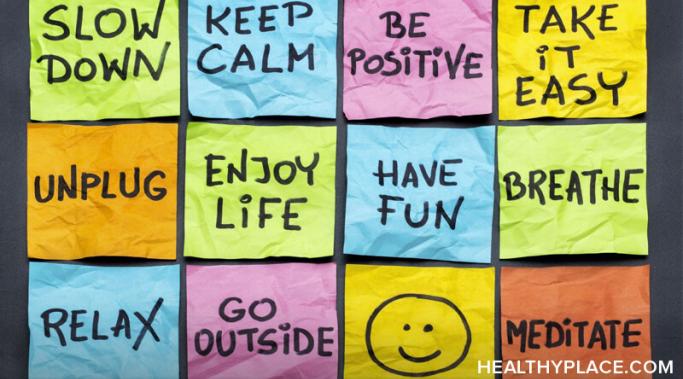New beginnings can be powerful tools for building self-esteem, especially for those of us with mental health conditions. When you are struggling with your mental health, it can feel like you are stuck in a cycle of negativity and self-doubt However, embracing new beginnings offers an opportunity to break free from that cycle and embark on a journey of self-discovery, growth, and improved self-esteem.
Self Confidence
As I sit down to reflect on the therapeutic power of spring cleaning and self-esteem, I am drawn into a journey of self-discovery and personal growth. Growing up, I never realized the profound impact that tidying my space could have on my mental wellbeing and self-esteem. However, as I have navigated through life's challenges, I have gradually uncovered the transformative effects of decluttering and organizing my surroundings. In short, your self-esteem can be affected by spring cleaning.
In the pursuit of nurturing self-esteem, my journey spans nearly two decades of mindfulness meditation practice and affirmations. The profound influence of mindfulness meditation practice has allowed me to comprehend the potency residing within my own mind, transforming it from a tumultuous sea of thoughts into a serene sanctuary that nurtures my self-esteem. Affirmations have a power all their own.
For those navigating mental health conditions, the journey toward self-love is not only crucial but can serve as a powerful catalyst for improved mental wellbeing. This Valentine's Day, let's shift the focus inward and explore the transformative practice of self-love, highlighting the empowering act of taking yourself on a date.
In my self-esteem journey, I've turned to exercise as a constant companion. Whether it's yoga, sports, weight lifting, or biking, the benefits of physical activity have been my steadfast allies. What I have come to realize, however, is that the positive impact of exercise goes far beyond the physical realm; it extends deep into the subjective domain, influencing the way I perceive myself. Ultimately, I've found that exercise boosts my self-esteem.
In my life, embracing setbacks has been a recurring theme. Setbacks are the unexpected twists in my mental health journey. Embracing setbacks has been a transformative experience, prompting me to reconsider their nature and my response to them.
Mindful observation can help you in your daily life. I have discovered a profound source of resilience. This is the ability to break free from the cycle of event-reaction. Too often, we find ourselves caught in the web of immediate responses, whether to subjective experiences or external occurrences. What if there was a third option, a path less traveled, that could grant us the power to enhance our self-esteem? For me, that third option is mindful observation.
In my life's journey, which includes nearly two decades of mindfulness practice, I have unearthed a profound connection between a mindfulness practice that creates increased mental control and the augmentation of self-esteem. This realization has been transformative, shaping the way that I perceive myself and my role in the broader tapestry of society. There is a huge potential for mindfulness to improve one's self-esteem.
Gratitude is important. Mental health issues can significantly impact an individual's self-esteem, often leading to a cycle of negative thoughts and emotions. In such cases, incorporating gratitude practices into daily life can be a powerful tool for fostering self-esteem and promoting mental wellbeing. In my own journey, I have found gratitude to be one of the most powerful states of consciousness to cultivate. When we look at life through the lens of gratitude, even the most challenging circumstances can be reframed in a positive light.
Mental health stigma can affect one's self-esteem. Mental health conditions are a common yet often misunderstood aspect of human life. Despite their prevalence, the stigma attached to these conditions remains a formidable obstacle for those who bear such diagnoses. Negative stereotypes, discrimination, and social isolation experienced by individuals with mental health diagnoses can severely affect their self-esteem. In this post, we will explore the practice of defying the stigma surrounding mental health, emphasizing its role in nurturing self-esteem in those who carry such labels.









